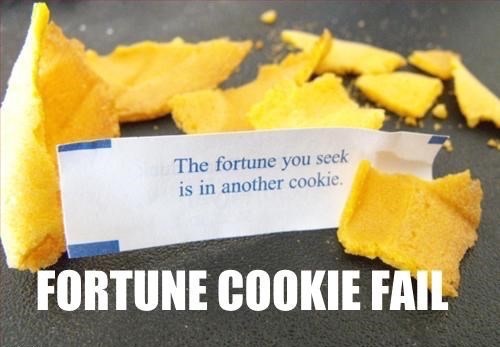Failing Virtuously
Last week we talked a bit about the importance of creating cultures of experimentation and listed a few practical ways to remove the fear from stepping out into a space of unknowns. Now it’s time to expand on them. We’re going to go through them one at a time and today we’ll look at embracing failure.
The notion of embracing failure is a topic I’m seeing a lot of lately, particularly on Twitter. Initially, I wondered if I had a case of new car syndrome…you know where you’re thinking about buying a particular kind of car and then every time you go out on the road it feels like you see a million of them?
But I don’t think that’s the case at all. I think the general trend is toward a higher level of awareness surrounding the idea of embracing failure. Yet, I don’t see it in practice nearly as much as it’s preached. There are champions of this concept out there walking the talk, but generally it doesn’t appear to be widely practiced.
We have a disconnect somewhere. Why? I believe it’s because, when those two words are left to stand alone or are even a part of a catchy phrase or quote it sounds like fortune cookie wisdom. That’s exactly what it is until you put some context to it. So let’s crack open the stale tasteless cookie and examine why it’s so important.
It’s reality – In order to eventually succeed in anything, we have to embrace the reality of our situation and one reality we all share is that we’re all human and we’re all going to mess up. It’s what we do about it that counts. To expect perfection opens the door for perpetual disappointment and very unhealthy employee morale.
It promotes learning – If you want to see your people grow and thrive both professionally and personally they need to learn. They can’t do that if they’re asked to check their creativity and curiosity at the door. Over time, their increased knowledge base is your organization’s enhanced intellectual capital and their individual success stories.
It adds value – When we think of failure, often times we think of the catastrophic variety, ones that cost millions of dollars. Most failure isn’t like that, it’s usually the small stuff, but that’s not what we see in the news. If failure is documented, shared properly and learned from you can quantify how much your small failures save your organization. It becomes compelling bottom-line stuff.
How do we put it to practice? There’s hundreds of ways, but these are two quick ones to start with that are widely known to work:
Fail early – This is why experimentation is so critical. Sometimes the best ideas just don’t pan out and sometimes the ones that look awful actually have some merit to them. You’ll never know unless you experiment with ideas in a casual and cost-effective way. It can save you a fortune and lots of headaches down the road.
Find the good – You can always find something good in an experiment gone wrong, so find it and share it. Be a champion for the successes that a failure yields and make sure people know what didn’t work so you don’t do it again. It’s ok to fail, but not at the exact same thing twice.
Without context for why we should embrace failure and a system to implement it, we’ll never even peel off the wrapper of the fortune cookie to find out if there’s anything valuable on the inside.




